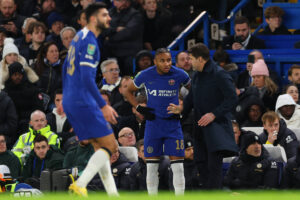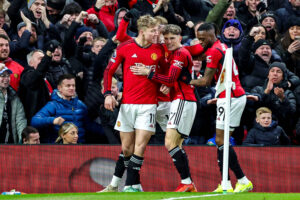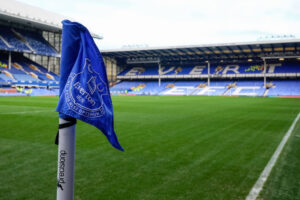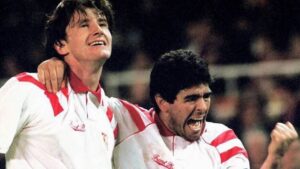The German National Team finished their Euro 2020 qualifying campaign on Tuesday, with the lone blemish coming in a September defeat to the Netherlands. The final two victories over Belarus and Northern Ireland ensured a first-place finish in Group C. While the squad is superb in its midfield and offensive thirds, with a plethora of rising and established stars, inconsistencies and strange managerial decisions within the defence are holding the team back. Dating back to before the 2018 World Cup, the same defensive line has not started two consecutive matches for Germany.
After the embarrassment in the summer of 2018 at the Russia World Cup, Die Mannschaft have continued to leak goals, conceding seven in their four Nations League matches, and six in two qualification matches against the Netherlands. The Germany defence that carried them to World Cup glory in 2014 is now a distant memory. Joachim Löw made some dramatic changes in 2019, possibly overcompensating for mistakes he made throughout 2018.
Germany Defence Rely on Consistency
The Problems Began in 2018
In Russia, Löw did not put out the same back four in any of Germany’s three group matches. Against Mexico, Joshua Kimmich, Jerome Boateng, Mats Hummels, and Marvin Plattenhardt were on the team sheet. With the help of Hirving Lozano, Mexico took all three points, exposing Hummels and Boateng for pace in dramatic fashion.
In response, Löw made some defensive changes, dropping Hummels for Antonio Rüdiger against Sweden. Rüdiger’s nervy start was overshadowed by Boateng’s infamous performance. The Berlin native made a foul in the penalty area during the first half that should have been given and he was then sent off late in the match. Against South Korea, the defence saw more unforced changes as Löw dropped Rüdiger for Niklas Süle, while Hummels came in for the suspended Boateng. There was a total lack of consistency throughout the tournament.
The poor form of Germany’s defence continued into the Nations League as Boateng and Hummels continued to play. In 2019, Löw told the two veterans that their days with the national team were done, no matter their club form. He felt it was time for them to get out of the way and make room for the youth. This is where Löw overcompensated for not having done that in 2018. Boateng had no business in the starting 11 during or after the World Cup. Süle should have taken his place, but the finality of Löw’s decision was shortsighted and unnecessary.
Big Changes Came in 2019
In 2019, Löw began tinkering with a back three consisting of Süle, Rüdiger, Matthias Ginter, and Jonathan Tah of Bayer Leverkusen as the backup. For the most part, it has worked, except against the Netherlands, where Germany conceded six goals in two qualification matches. The reality, however, is that other than against the Netherlands, the newly formed defence has not been truly tested against a high-level opponent.
Löw overreacted by outright banning Hummels. Pride may have to now be set aside because Süle could miss this summer’s European Championship. The new leader of the German defence is out, requiring a veteran of Hummels’ status to be brought back. While Ginter and Rüdiger are well-seasoned defenders, they are not yet at the level required to build a world-class defence around. Hummels is vastly experienced and respected by the other German players, and even if he does not start most games, his presence would make a monumental difference.
Ginter and Rüdiger should start most matches, but in a back three, Tah is too inconsistent to rely on. Niklas Stark of Hertha Berlin made his Germany debut against Northern Ireland, while Robin Koch of SC Freiburg is another option, but Hummels is the ideal candidate for the third slot left open by Süle’s absence. It is easy to forget that the Dortmund defender is only 30-years-old.
Consistency Will be Key
Whatever decision Löw makes with Germany’s defence, it is paramount that he comes up with a back three that consistently play together, cultivating a true identity. While Süle is injured, a back three of Ginter, Rüdiger, and Hummels could work well, with Tah, Stark, and Koch as rotational players. If not, Löw can always revert to a back four of Kimmich, Ginter, Rüdiger, and Hector.
The pieces are all there for Germany’s defence to once again become world-class. Kimmich is already one of Europe’s best right-backs, while Jonas Hector has proven himself to not just be a reliable left-back, but a loyal one as well, staying at FC Köln during last season’s foray in Bundesliga 2. The question remains whether Löw will stick with the back three and his decision regarding Hummels. There are a plethora of up-and-coming centre-backs that can form a strong defence with Kimmich and Hector as the wing-backs.
The subject of consistency was much different in the 2014 World Cup. From the quarter-final onward, Löw put out the same back four of Philipp Lahm, Hummels, Boateng, and Benedikt Höwedes. The defence conceded just two goals during the knockout stages in Brazil. Per Mertesacker and Shkodran Mustafi were the squad players, both playing from the start in some matches, but consistency in defence was key. Löw needs to restore such solidity if Germany are to have any chance at this summer’s European Championship.
Main Photo






